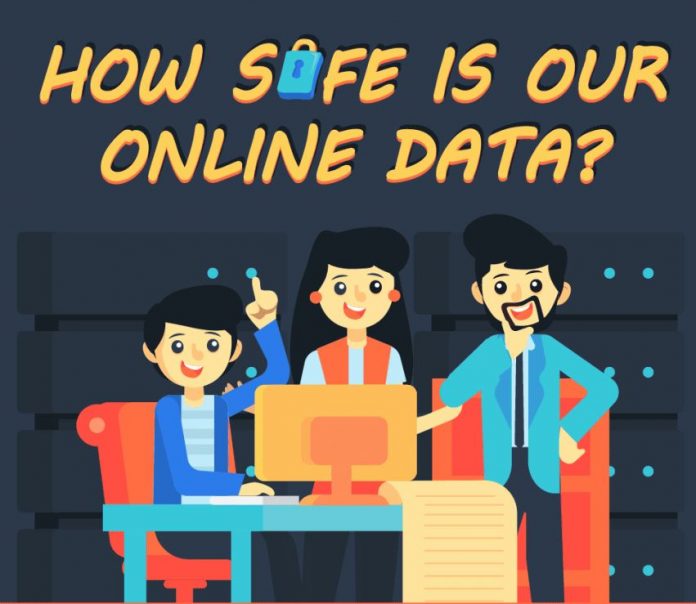While the internet promises us an easier alternative to access services, content, and products, we should remember that its downsides are equally monumental. Acknowledging this will help us appreciate the need for adopting practices that will ensure we remain safe online.
The infographic below perfectly illustrates the significant threats we expose our information to when we access and open accounts that require our private information. Although there is little we can do about the way these service providers utilize our data, we can practice some of the safety tips listed on the infographic below to effectively minimize the intensity of the risk we expose our data to.
They include:
Powering up Our Passwords
You can fortify your accounts by utilizing strong and unique passwords that will frustrate attackers’ efforts to access your accounts. Employ case-sensitive passwords and don’t use the same password for all your accounts. In the event of a data breach in any of your accounts, recycling a password puts all your other accounts at risk. We found it shocking to find out that 65% of companies have over 500 employees who have never changed their password.
Beware the Risk of Accessing Free Content
We rely on free content providers for our music, ebooks, and movies. Getting freebies is great; however, note that the price you pay for accessing this content is more than what you would have paid on more trusted websites. This free content sometimes carries viruses or malware that will jeopardize the safety of our data.
Use VPN and Secure Networks
Staying anonymous online is a good way to avoid unwanted attention, and you can do this when you use VPN services. Also, stay away from public WiFi and networks when accessing sensitive data because you never know who is monitoring the traffic on these networks.
Beware of Phishing Scams
Try not to indiscriminately click on links, as they could lead you to fake sites that are after your private details. Make sure that you verify the authenticity of your emails before acting on the information contained in them.
Run Anti-Virus Software on Your Computer
No matter how hard we try to avoid threats on the internet, we still may fall victim. Therefore, you should run good anti-virus software on your computer for extra protection. However, note that an anti-virus is more effective when you frequently update it.
These are just some of the ways you can stay out of harm’s way when surfing the internet. Check out even more simple and surefire ways you can improve your online safety in the infographic below.
Infographic Credit






























